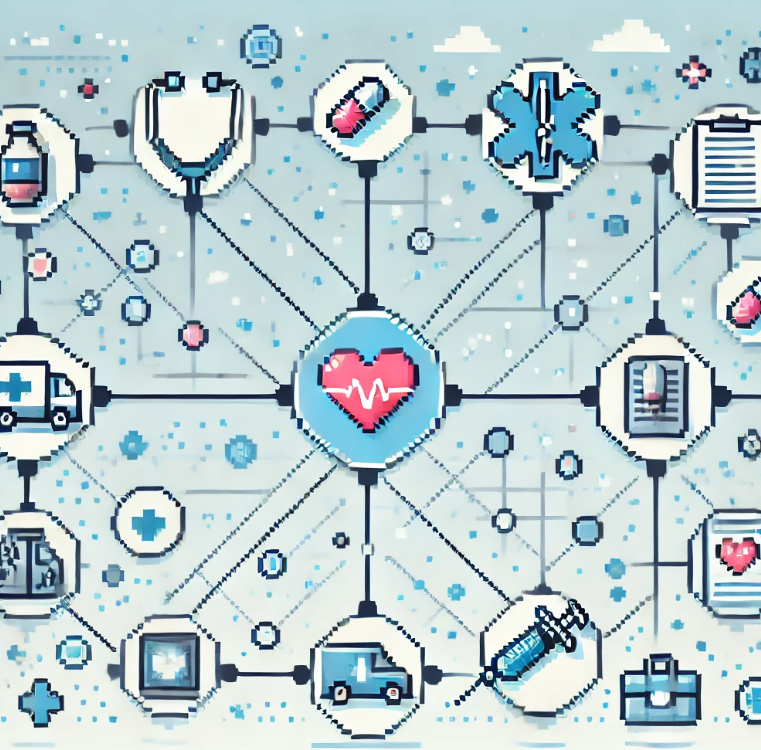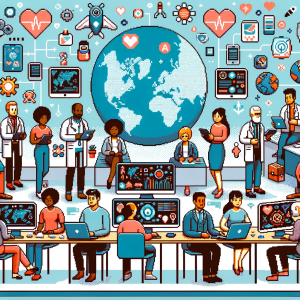
Will AI Revolutionize Healthcare?
Imagine a world where doctors can access the latest research instantly, avoid human errors, and offer more personalized care to each patient. Thanks to the revolutionary integration of artificial intelligence (AI), this isn’t a scene from a science fiction movie but a glimpse into the future of healthcare.
In the world of medicine, decisions are traditionally made using Evidence-Based Practice (EBP), which relies on three pillars: evidence, clinical experience, and patient preferences. However, implementing EBP is no easy feat. The process is riddled with challenges, but AI promises to streamline and enhance it, ushering in what some experts call EBP 2.0.
The Three Pillars of EBP: Challenges Galore
1. Evidence: The Quest for Quality and Speed— The foundation of EBP lies in using high-quality evidence to inform clinical decisions. However, generating and disseminating robust evidence is a slow process. Research findings often become outdated by the time they reach clinicians. Moreover, high-quality studies are scarce, and the evidence available is frequently too general, not addressing the specific needs of diverse patient populations.
2. Clinical Experience: The Human Touch— Clinicians draw on years of training and practice to interpret and apply research findings. Their expertise is essential, especially when evidence is lacking or not directly applicable. However, this reliance on human judgment introduces cognitive and implicit biases, which can lead to errors and inconsistent care. Busy environments and high stress levels only exacerbate these issues.
3. Patient Preferences: The Missing Link— Involving patients in their care decisions is crucial for successful treatment outcomes. Yet, many patients struggle with low health literacy and feel uncomfortable participating actively in their healthcare. Clinicians, on the other hand, may underestimate patient knowledge or lack the time and communication skills to engage effectively with them.
AI to the Rescue: Enhancing EBP
1. Enhancing Evidence with AI— AI can significantly speed up the generation and dissemination of evidence. For instance, AI algorithms can analyze vast amounts of data much faster than humans, identifying relevant studies and summarizing findings efficiently. This capability can streamline the creation of systematic reviews, making up-to-date evidence more accessible to clinicians.
In clinical trials, AI can improve every phase, from identifying potential drug candidates to monitoring patient adherence and analyzing results. AI-driven tools can predict toxicity and side effects early, enhancing trial success rates. Additionally, AI can match patients to trials more accurately and ensure better monitoring, reducing the workload for human researchers.
2. Boosting Clinical Experience with AI— AI excels at processing data quickly and accurately, providing clinicians with real-time insights. In areas like image analysis, AI has already shown superior performance, often surpassing human radiologists in detecting fractures and cancers. By integrating AI into clinical decision-making, we can reduce diagnostic errors and ensure more consistent and accurate care.
AI also offers innovative training tools for medical professionals. Large language models can simulate patient interactions, providing valuable hands-on experience in a controlled environment. These simulations can help future clinicians develop critical skills without the immediate pressures of real-world practice.
3. Elevating Patient Preferences through AI— AI has the potential to revolutionize patient engagement. By automating routine tasks, AI frees up time for clinicians to focus on meaningful patient interactions. Tools like AI-driven self-monitoring devices empower patients to manage their health more independently, fostering a more collaborative approach to healthcare.
Moreover, AI can enhance communication by providing clear, easy-to-understand information and helping patients make informed decisions about their care. This increased engagement can lead to better treatment adherence and improved health outcomes.
Join the Conversation
- How do you think AI could change your interactions with healthcare providers?
- What excites or concerns you about the integration of AI in healthcare?
Share your thoughts in the comments or on social media!
Conclusion: Embracing the Future of Healthcare
AI holds immense promise for transforming healthcare and addressing the longstanding challenges of EBP. By enhancing evidence generation, supporting clinical experience, and elevating patient preferences, AI can lead us toward a more efficient, effective, and personalized healthcare system.
Yet, this transformation comes with its own set of challenges. The potential for biases within AI systems, the risk of deskilling clinicians, and the need for empirical validation of AI applications are critical issues that must be addressed. As we navigate this new frontier, ongoing research and thoughtful implementation will be essential to harnessing AI’s full potential while safeguarding the human elements that are indispensable to quality healthcare.
Join the Community – Get Your Weekly Public Health Update!
Be a health leader! Subscribe for free and share this blog to shape the future of public health together.



